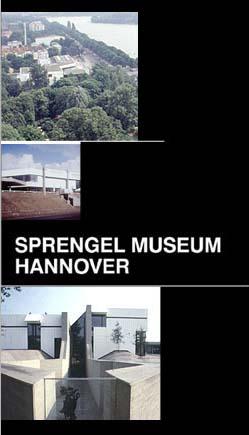Bluebox Video
dal 11/1/2003 al 20/4/2003
Segnalato da
11/1/2003
Bluebox Video
Sprengel Museum, Hannover
Wenzel Storch: 'Der Glanz dieser Tage'. All Wenzel Storch films are flamboyant and colurful, experimental cinema in the true sense of the word. They cultivate an anarchic discourse, relishing a rather baroque lust for images.

Wenzel Storch: 'Der Glanz dieser Tage'
All Wenzel Storch films are flamboyant and colurful,
experimental cinema in the true sense of the word. They cultivate an
anarchic discourse, relishing a rather baroque lust for images. When the
movie 'Der Glanz dieser Tage' (the brilliance of these days) was premiered
in 1989 it was celebrated by the critics as 'a little masterpiece, slighty
off the trolley, full of religious pieces of wisdom'. Being a low budget
film, Storch's debut feature used all the different filming techniques
creating a kind of blasphemous re-invention of cinema - acting in the spirit
of television, pop, punk or a punch-and-judy-show.
Be that as it may, Storch never found a distributor:
in his well-directed igno-rance of prevalent story-telling klischees he made
sure that distributing companies decided that this film could not be
admitted to the general cinema audience.
To make a virtue of necessity Storch personally
presented his film at festivals and in independent art-cinemas. This tour
became a major success and founded the myth that surrounds Storch's work,
his qualities as a director and his team of movie-obsessed laymen.
With his production of 'Sommer der Liebe' (summer of
love), made 1992 on Super-8-material and distributed by himself, he
confirmed the myth and proved cinema-capability with an audience of more
than 30,000. Being in deep water financing the sound-track of his third
movie 'Coconut Dream' this film still awaits completion. But test-previews
already confirmed this as a opulent masterpiece, a screen spectacular of
design and fantasy.
Press reactions were spectacular as well: (German)
'Rolling Stone' counting Storch as Germanys most hopeful directing talent
(9/2002) whereas 'Die Zeit' called his work an 'alchemistic art of turning
deficiency into the unpredictable and amateurish dilettantism into big
moments' (34/2000). Magazine 'Geo' sees him as the 'most curious of all
German inventors of images' (11/2000) and the 'Spiegel' simply calls him a
'crazy genius' (7/2000).
The Sprengel Museum Hannover pays tribute to 'Der
Glanz der Tage' as an almost forgotten masterpiece on the border of cinema,
art and pictorial anarchy.
Additional information:
Photography and media: Inka Schube
Phone +49 511 168-462 11, Fax +49 511 168-450 93
Press and public relations: Michael Quasthoff
Phone +49 511 168-439 24, Fax +49 511 168-450 93



